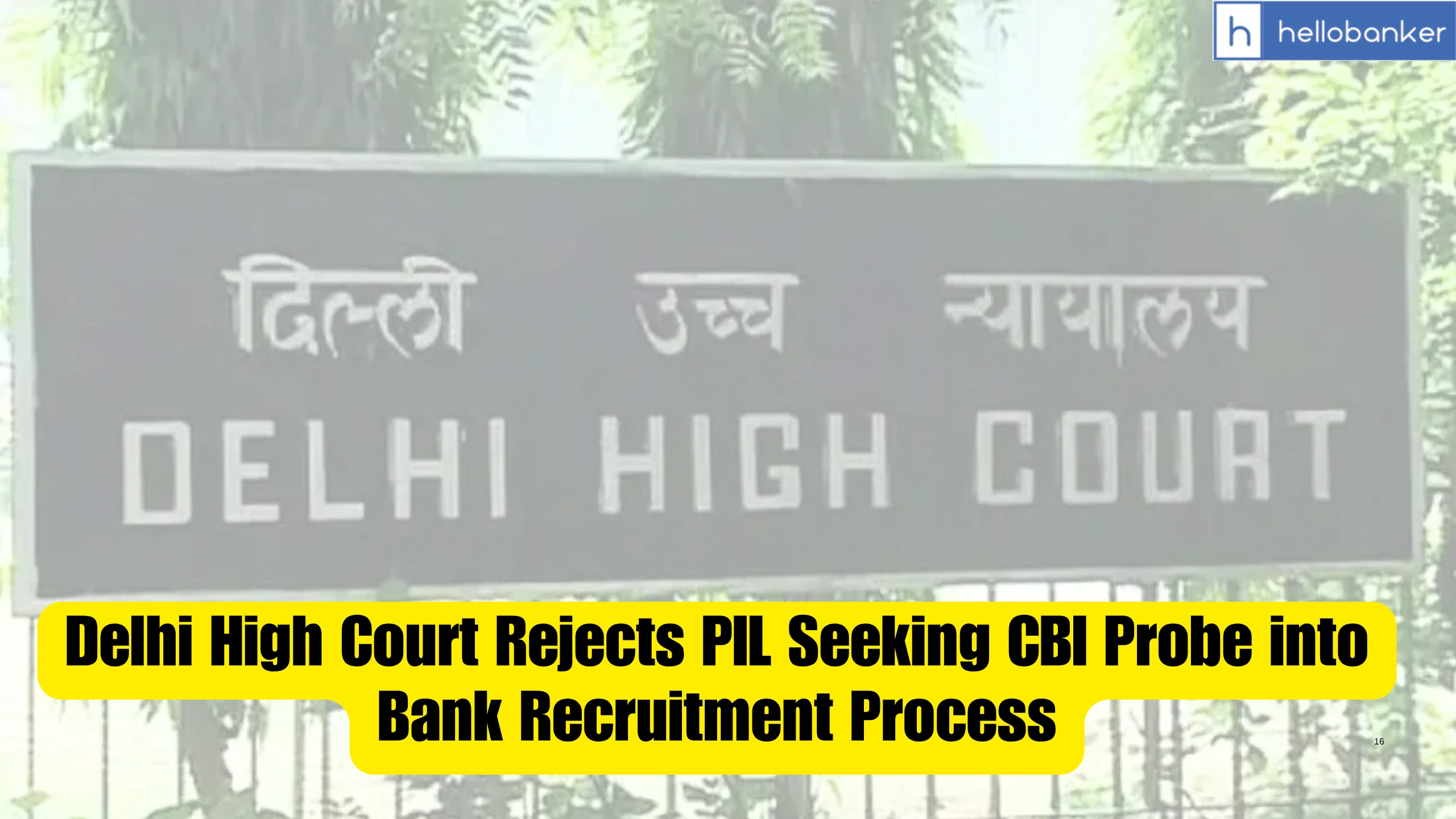The Delhi High Court on Wednesday declined to hear a Public Interest Litigation (PIL) that called for a CBI or SEBI investigation into the use of external recruitment agencies by public sector banks. The court made it clear that the PIL lacked a solid foundation and was largely based on media reports, which is not sufficient for judicial action.
Court Criticizes Petitioner for Relying on News Reports
A Division Bench of Chief Justice Devendra Kumar Upadhyaya and Justice Tushar Rao Gedela came down heavily on the petitioner. The judges noted that the petition was mainly based on a report by NDTV Profit, which talked about alleged irregularities in the recruitment process at Can Fin Homes Limited, a housing finance company. The Chief Justice bluntly remarked, “Don’t file PILs after reading newspapers. Are we a post office? You can’t expect the court to act on half-baked information.”
Court Says Media Reports Alone Are Not Proof
The petitioner had also cited whistleblower complaints and claimed there was manipulation in candidate assessments and the involvement of third-party agencies and senior officials. However, the court said that just because a news report mentions a scam does not make it automatically credible. The judges explained that unless there is corroborating evidence, the court cannot act on media reports alone. They questioned whether the material submitted was enough to even consider registering an FIR.
The court also pointed out that the petitioner did not first approach relevant authorities, like the Reserve Bank of India (RBI), before filing the PIL. The judges said that a person must try to resolve the matter through proper channels before coming to the court seeking orders. Due to the lack of groundwork and insufficient evidence, the petitioner ultimately chose to withdraw the PIL.
What the PIL Was About
The petitioner had raised concerns about the lack of regulation for external recruitment agencies being used by public sector banks and their affiliated companies. He argued that this creates opportunities for scams and unfair practices, which can harm the careers of deserving candidates and damage public trust in financial institutions. He requested that a proper legal framework be introduced to regulate the hiring process through third-party agencies.
The court made it clear that PILs should not be filed casually or based only on assumptions or news articles. It reminded citizens that PILs are powerful tools meant to address serious public issues, and must be backed by factual evidence, thorough research, and prior efforts to get help from relevant authorities.
